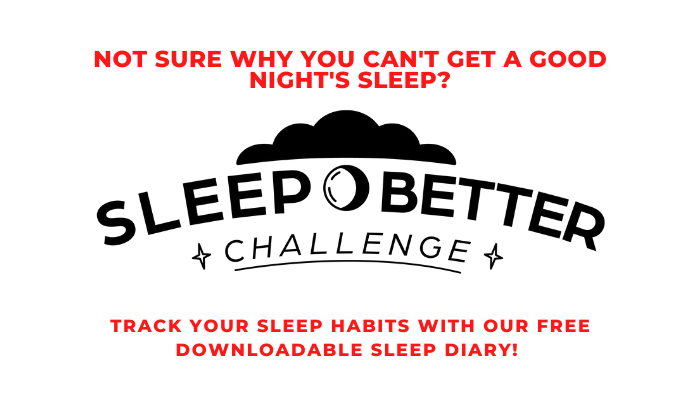Uncategorized
Losing Sleep? 4 Reasons You Need A Sleep Diary [FREE DOWNLOAD]
Are your eyelids feeling heavy throughout the day? Have you been struggling to fall asleep at night or stay asleep? Is your lack of rest interfering with productivity at work or school? When you do get sleep, is it truly fulfilling—or are you left wishing for more?
When the quality of your sleep feels like it just isn’t up to par, you might consider keeping a sleep diary. A sleep diary is a private record of your sleep patterns and habits.
What Is A Sleep Diary?
In a sleep diary, you can record helpful information including:
- Activities you perform within an hour or two of bedtime
- What time you went to bed
- How long it took for you to fall asleep
- How many times you woke in the night
- What, if any, sleep disturbances did you experience (leg movements, insomnia, trouble breathing, night sweats, nightmares, etc.)
- What time you left your bed in the morning
- How refreshing your sleep was
- How many caffeinated beverages you had during the day
- How many alcoholic beverages you had during the day
- How many times you dozed off or nearly dozed off during the day
- What your mood was like throughout the day
- How long your nap was if you took one
- What medications you took
While you might wonder how the simple act of journaling can result in higher-quality sleeping habits, sleep medicine specialists frequently recommend it. “A sleep log is a great way to document what someone is feeling about their sleep quality and see if that improves over time,” Dr. Matthew Ebben, PhD, sleep medicine specialist told NBC News in 2018.
Why A Sleep Diary Might Be Beneficial to You
- It can help you see things you’ve been missing

Although a sleep diary is a subjective tool, it can help identify objective problems. After recording your activity, you could find that that small habits like a mid-day latte or a high-intensity spin class at the wrong time could lead to disrupted sleep. When asked how often he gives his patients a sleep diary, Ebben replied: “All the time. All the time.”
- It contains worthwhile details
A sleep diary records much more than just when you fall asleep and wake up. It also takes account of when you first got into bed, when you fell asleep, if/when you woke up during the night, when you first woke up in the morning, when you got out of bed, medications you take during the day, caffeine and alcohol use, if and when you napped, exercise you did and your mood during the day.
- It’s difficult to remember everything unless you write it down
Ebben adds that writing it down truly does help. Often, patients think they will be able to remember everything about their sleep — and be able to recite it back to [their] doctor — but they usually don’t, he says. “And sometimes people will think things aren’t a big deal, but your sleep specialist will disagree,” Ebben continued. “These little details are important. And on a sleep log, you can see them.”
- A doctor’s prescription isn’t needed
Wondering if the sleep diary method will work for you? There’s no harm in trying it, and there’s no prescription needed to begin. Sometimes, you might be able to identify problem areas without obtaining a sleep medicine degree. “Sometimes just by starting to track sleep times, people start to have more regular sleep-wake times. People self-treat,” Ebben said.

We care about the quality of your sleep, that’s why…
…we’re giving you a FREE Sleep Diary Tracker!

